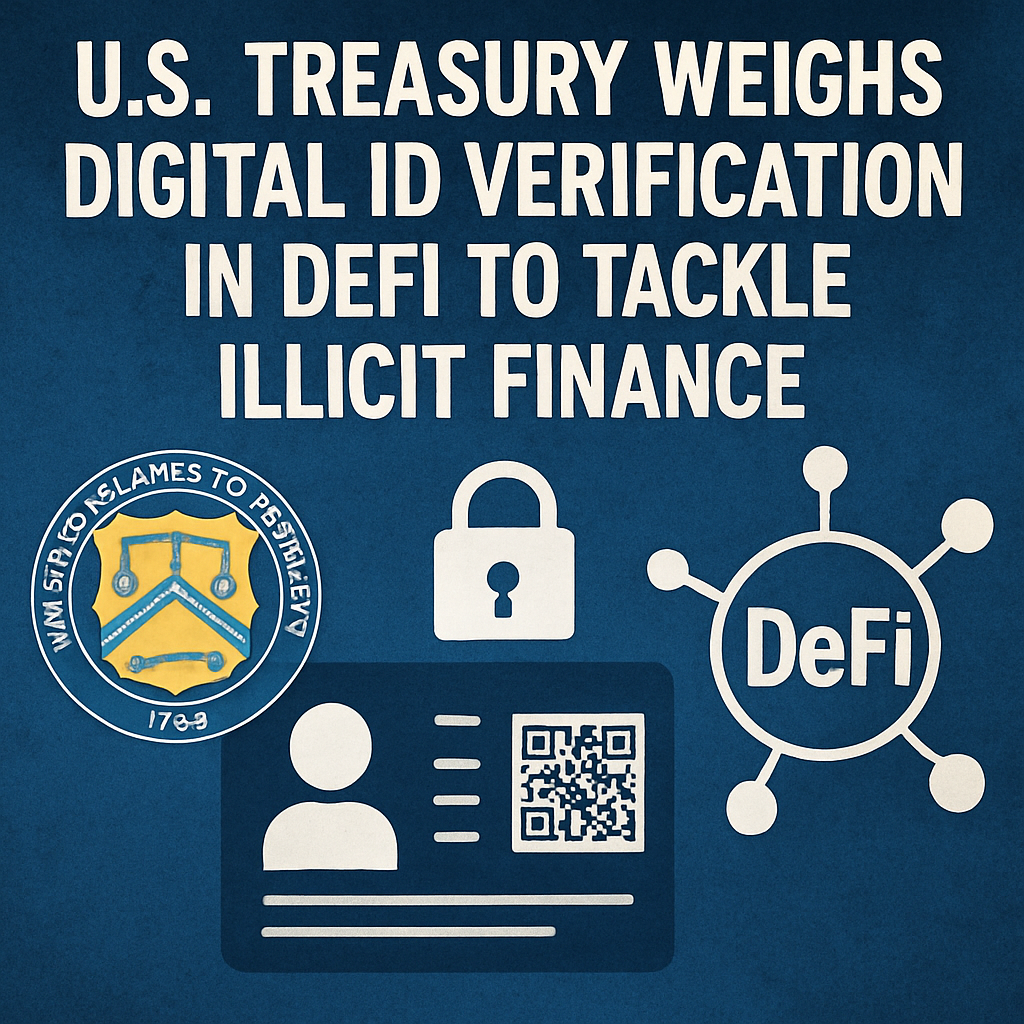Consultation Context and Objectives
The US Department of the Treasury issued a public request for comment this week under the GENIUS Act, focusing on digital identity verification tools for decentralized finance (DeFi) protocols. This effort seeks input on embedding identity checks directly into smart contracts to prevent money laundering, terrorist financing, and sanctions evasion before transaction execution.
Proposed Identity Solutions
Treasury’s consultation outlines potential options including government-issued digital credentials, biometric authentication (facial recognition, fingerprint), and portable credential wallets. These mechanisms could be integrated at the protocol layer, allowing a DeFi smart contract to automatically verify a user’s validated identity before approving transactions.
Compliance and Privacy Considerations
Embedding identity checks can streamline KYC/AML processes, reducing compliance costs for DeFi platforms and financial institutions. However, Treasury acknowledges privacy risks, emphasizing the need for solutions that minimize data exposure, employ zero-knowledge proofs, and maintain user anonymity for non-financial on-chain activities.
Expected Impact on DeFi Ecosystem
If adopted, identity-enabled smart contracts could transform how DeFi platforms manage regulatory obligations, potentially enabling licensed entities to offer permissioned pools, lending services, and tokenization products. This shift may attract institutional participants wary of counterparty and regulatory risks.
Stakeholder Feedback and Next Steps
Comments remain open until October 17, 2025. Treasury encourages submissions of technical designs, pilot results, and cost-benefit analyses. After the comment period, the department will compile insights into a report for Congress and may propose rulemaking or guidance to formalize identity integration standards.
Industry Response
Major US banking associations recently warned of stablecoin yield loopholes under GENIUS, urging tighter controls. The digital ID consultation may address these concerns by embedding compliance at the protocol level, reducing dependency on off-chain intermediaries.
Conclusion
Treasury’s digital ID verification initiative aims to balance innovation with security, leveraging emerging technology to enhance DeFi integrity. Successful integration could serve as a model for other jurisdictions seeking to regulate decentralized finance without stifling growth.

Comments (0)